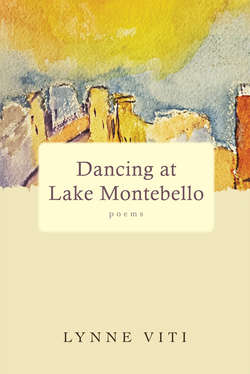Читать книгу Dancing at Lake Montebello - Lynne Viti - Страница 12
На сайте Литреса книга снята с продажи.
ОглавлениеInheritance
A fair, freckled child who knew only one person with
dark skin, hair that crinkled at the temples
with eyes the color of the rich garden earth —
might be forgiven for thinking that this woman,
who each day walked from the streetcar stop on the corner
to the child’s home, half a house
spitting distance from the city-county line — should marry.
Marry what was grown-ups did, her parents, aunts, uncles —
All married. Only the priest and nuns were not.
Like the cardinals in the yard, the red male, dun-colored female,
everyone should have a partner, be one of a pair.
That child might be forgiven for foolishly suggesting
the woman who came to cook and clean should wed the man
who pushed a broom at the brick building
by the alleyway, an office building owned by a white man
the child never saw, only heard his name spoken,
Mister something-or-other, a forgettable name.
But Mister Fitcher, the handyman, was handsome.
He wore tan trousers and a white shirt.
The child’s father called him Fitcher, never Mister.
When the child revealed her matchmaking plan
for Miss Burnell to marry Mister Fitcher,
her father laughed —
Fitcher was already married, had kids.
The child’s imagination hadn’t stretched that far,
she couldn’t envision Mister Fitcher with children, a wife.
She thought he slept in the office building.
She saw him every day but Sunday
working in the alley near the back door,
always in motion, carrying boxes,
hosing down the boss’s car,
hauling junk away in an old Chevy pickup.
Privilege let her grow tall,
gave her a voice people listened to.
Miss Burnell worked hard, liked her drink on a Saturday night,
had a couple girlfriends, whether drinking pals or lovers
was never clear. She worked till she was sixty-five,
The crinkly black hair turned salt-and-pepper.
The emphysema came in her later years, after the riots,
after all the houses on Biddle Street were razed.
The girl grew up, married, had a baby, sent photos to her old —
What should she call her? Who was she, besides Burnell?
Babysitter, housekeeper, nanny, minder,
the one always there after the school day ended,
when the girl burst in with her bookbag, asking
What’s for supper? The one who called the mother
when the girl had a fever, or when the insurance man
or paper boy came to the door to collect the payment.
Call her by her name, Miss Brown
who came north from Virginia before the War,
who taught the girl how to iron,
how to make a piecrust,
who asked the smallest of favors,
bring that vacuum cord down here,
run upstairs and get me that dustcloth, who said
Thank you, baby, I’ll dance at your wedding.
A photo of Miss Burnell Brown hangs on the wall.
She lounges, draping herself on the double bed, smiling.
Moments before the shutter blinked
she had a coughing fit.
She looks resigned, her bible and the radio nearby.
She lived another six years,
then the diabetes, the bad heart,
the emphysema carried her off.
